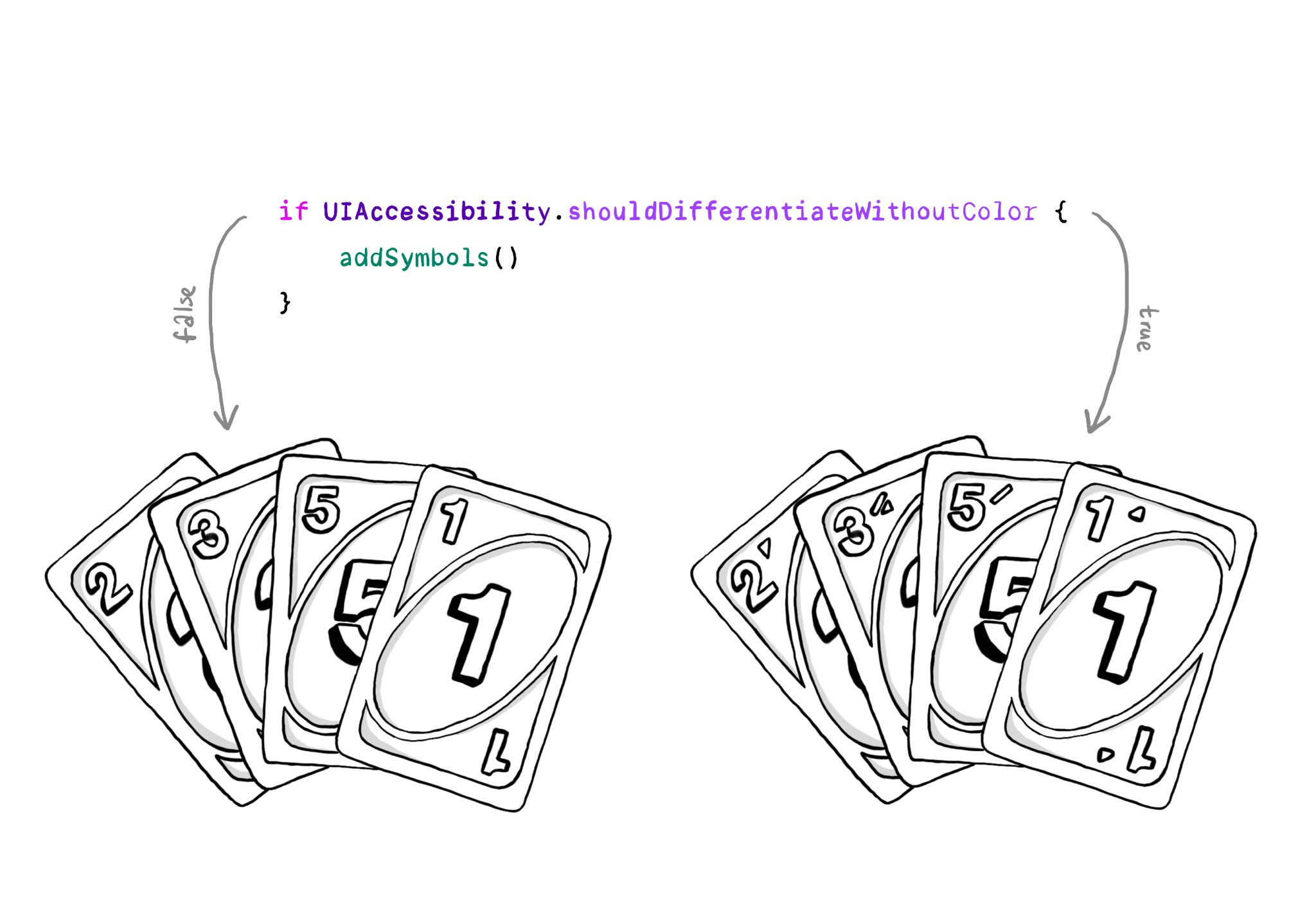In Objective-C accessibility traits are a bitmask. Some devs find tricky to work with them using bitwise operations. In Swift they conform to the OptionSet protocol that conforms to SetAlgebra. That means you can simply insert/remove traits.

In Objective-C accessibility traits are a bitmask. Some devs find tricky to work with them using bitwise operations. In Swift they conform to the OptionSet protocol that conforms to SetAlgebra. That means you can simply insert/remove traits.


When building custom components, or if not relying on UIControl's attributes to configure state, it can be easy to forget to specify the right accessibility traits. These are indispensable for a good experience with VoiceOver, Switch Control...

You should convey important information in multiple modes, not just color. If you are still required to do so, at the very least you should complement that info with other modes, like symbols, if the user requested differentiation without color.

Manual testing is crucial. And therefore, reducing friction to let you start your testing process can be a huge help. Selecting some accessibility shortcuts will do that, putting most of iOS' accessibility features at a triple-click of a button.
Content © Daniel Devesa Derksen-Staats — Accessibility up to 11!